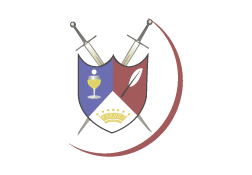You are here
 February 05 2010
Faith matters: You're lonely, I'm lonely
February 05 2010
Faith matters: You're lonely, I'm lonely
Joseph Cacioppo, one of the researchers of the study, argues in his book Loneliness that people who are lonely tend to view things as more threatening than they really are. Apparently the part of the brain that processes feelings of loneliness also processes physical pain. So those who are feeling lonely can easily convey to others feelings of fear or threat as well as feelings of pain.
Read more February 04 2010
An Exercise in the Fundamentals of Orthodoxy: Sexuality and Slavery
February 04 2010
An Exercise in the Fundamentals of Orthodoxy: Sexuality and Slavery
Alternative Interpretations
There is one revisionist argument that we can dismiss immediately, and that is the idea that Romans 1 does not matter in the modern context because it is not referring to committed monogamous relationships.
Read more February 02 2010
ROMAN CATHOLICISM AND THE COUNCIL OF TRENT - C. FitzSimons Allison
February 02 2010
ROMAN CATHOLICISM AND THE COUNCIL OF TRENT - C. FitzSimons Allison
No tradition (or generation of believers) is without the need to hear our Lord’s warning concerning the self-righteous yeast of the Pharisees. The decrees of the Council of Trent about sin and justification are to Pharisaism as cigarettes are to cancer. Some issues at these two sessions evoked special criticism from Anglicans and Protestants and dismay among many Catholics as well.
Read more January 25 2010
Curing Christians' Stats Abuse
January 25 2010
Curing Christians' Stats Abuse
Research Gone Wild
Once a choice morsel of misinformation gets out, it multiplies faster than dandelions in the spring. We have all heard these soul-seizing yet false factoids. Some of us have even repeated them:
"Christianity will die out in this generation unless we do something now."
"Only 4 percent of this generation is Christian."
"Ninety-four percent of teenagers drop out of church, never to return again."
Read more January 21 2010
Air Conditioning Hell: How Liberalism Happens
January 21 2010
Air Conditioning Hell: How Liberalism Happens
This coming to terms with secular culture is deeply rooted in the sense of intellectual liberation that began in the Enlightenment. Protestant liberalism can be traced to European sources, but it arrived very early in America-far earlier than most of today's evangelicals are probably aware. Liberal theology held sway where Unitarianism dominated and in many parts beyond.
Read more January 21 2010
How to Become a Liberal Without Attending Harvard Divinity School
January 21 2010
How to Become a Liberal Without Attending Harvard Divinity School
Some of these comments apply to those pastors, but they're not really who I have in mind either.
The pastors I want to talk to are pastors like me. I don't mean to be a liberal like my undergraduate friend. And I'm not a rock star evangelist who's built a mega-church by walking the fine edge between relevance and faithfulness, always in danger of falling off that edge into a soft liberalism that loves Jesus, but mainly for what he can do for me, rather than for who he is.
Read more January 18 2010
Bible Possibly Written Centuries Earlier, Text Suggests
January 18 2010
Bible Possibly Written Centuries Earlier, Text Suggests
"It indicates that the Kingdom of Israel already existed in the 10th century BCE and that at least some of the biblical texts were written hundreds of years before the dates presented in current research," said Gershon Galil, a professor of Biblical Studies at the University of Haifa in Israel, who deciphered the ancient text.
BCE stands for "before common era," and is equivalent to B.C., or before Christ.
Read more January 07 2010
The Emergent Church's Retreat into Pre-Reformation Darkness
January 07 2010
The Emergent Church's Retreat into Pre-Reformation Darkness
"By Their Fruits You Will Know Them"
Read more January 04 2010
Gresham Machen on the Christian Doctrine of Sin
January 04 2010
Gresham Machen on the Christian Doctrine of Sin
A fully orthodox treatment of sin is absent from the theology of the 1979, as well as a full-bodied treatment of the atonement, because of the theological liberalism which Gresham Machen criticized in his works. It is part of an overall return, he argued, to a pagan view of human nature marked by the belief that we may become virtuous by our own efforts.
Read more December 30 2009
The Church Society's Response to "Being Faithful"
December 30 2009
The Church Society's Response to "Being Faithful"
We are grateful to you for your work, as part of the GAFCON Theological Resource Group on “Being Faithful”, the Commentary on the Jerusalem Declaration. We note that it is commended to the wider church for further discernment. The Council of Church Society has therefore considered and discussed the report and wishes to draw a number of matters to your attention.
Read more


